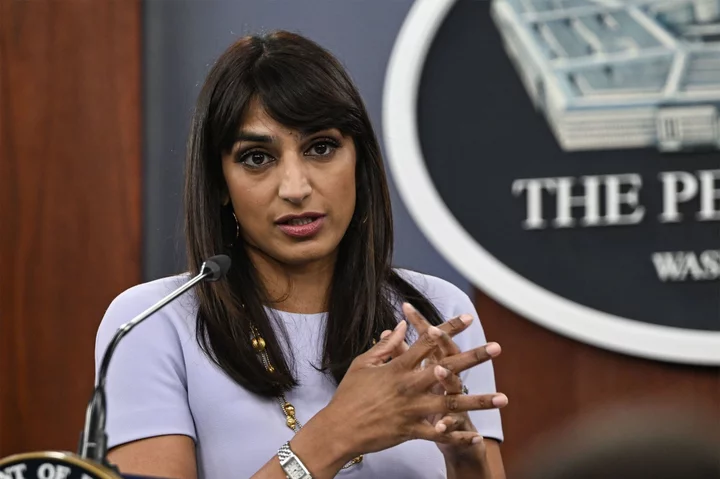The Pentagon won’t yield to demands from Senator Tommy Tuberville to scrap its travel policy for service members seeking an abortion in exchange for lifting his blockade on more than 300 military promotions, Defense Department spokeswoman Sabrina Singh said Wednesday.
“We are not changing our policy,” Singh said on Bloomberg Television’s “Balance of Power.”
“We have to make sure that a service member serving in Alabama has the same rights and access to reproductive health as a service member in California or a service member in Korea,” Singh said. “We need to make sure that there is equity across our military and that all of our service members have access to reproductive health care.”
Tuberville, an Alabama Republican, said on the same program Tuesday that he’d continue to block hundreds of US military promotions unless the Biden administration abolishes the new abortion policy and the Senate votes on the issue because “we are not a Communist country.”
The Pentagon announced last year that it would pay allowances for troops and their dependents traveling to obtain abortions in places where they remain legal because of concern that the Supreme Court’s decision to end a constitutional right to abortion put pressure on military readiness and recruitment.
Earlier: Tuberville Demands a Senate Vote on Pentagon Abortion Policy
“Our policy — to explain to the senator who has gotten multiple briefings on this — does not change what the department covers for reproductive health,” Singh said.
“What it allows is for a service member to travel outside of their state if they are positioned somewhere that has restrictive reproductive health care access. That is all — nothing has changed in terms of the types of reproductive care and access that the department itself will cover. That is a very important distinction.”
Doctors on military bases, as employees of the federal government, are already banned from performing abortions, so female troops and dependents of armed services personnel must seek the procedure on their own.
The department’s policy makes exceptions when the pregnancy is the result of an act of rape or incest or when the life of the mother is at risk.
--With assistance from Annmarie Hordern and Joe Mathieu.









